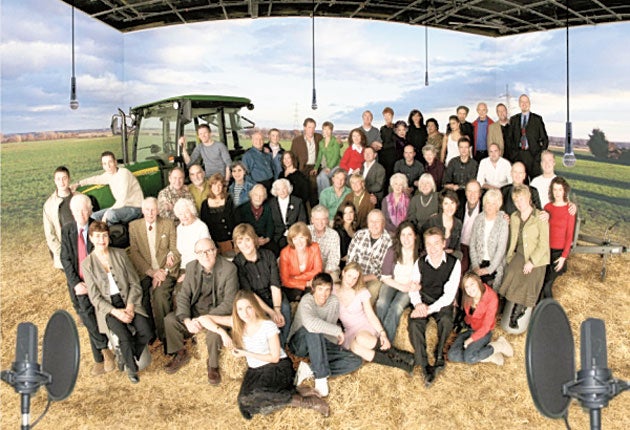The Week in Radio: Murder must be handled with great care

Your support helps us to tell the story
From reproductive rights to climate change to Big Tech, The Independent is on the ground when the story is developing. Whether it's investigating the financials of Elon Musk's pro-Trump PAC or producing our latest documentary, 'The A Word', which shines a light on the American women fighting for reproductive rights, we know how important it is to parse out the facts from the messaging.
At such a critical moment in US history, we need reporters on the ground. Your donation allows us to keep sending journalists to speak to both sides of the story.
The Independent is trusted by Americans across the entire political spectrum. And unlike many other quality news outlets, we choose not to lock Americans out of our reporting and analysis with paywalls. We believe quality journalism should be available to everyone, paid for by those who can afford it.
Your support makes all the difference.I was recently told, by someone who ought to know, that The Archers is ruminating on its own greatest taboo. When, if ever, should the everyday story of country folk stage its first murder? There have, of course, been deaths aplenty in Ambridge.
We've had tragic accidents and rape, and Clive Horrobin's career of violent crime. You always know when adultery is underway in the Borchester area because the BBC trails it like a major news event. But an actual murder? Leading characters may drop like flies on TV soaps, but in Ambridge, that Platonic ideal of real life, wouldn't it be like doing in one of your neighbours? Could the listeners take it? "Yes!" I hear millions yelling, but I'd advise caution. Once Ambridge is steeped in gore there's no way back. Not to mention the tricky business of who should be eliminated. Should it be dear, conflicted Pip, with her annoying voice, forever silenced by Jude? A drive-by shooting at Grey Gables? Or Kenton in the kitchen with a carving knife?
Archers Cluedo, though a pleasant diversion, reflects on an important issue – which is trust. Like one of those Chinese vases in A History of the World in 100 Objects, radio has its own sacred artefacts, including The Archers, that have to be handled with exquisite care. Without wanting to come over all sociology lecturer, change can be a dangerous, erosive force. A murder here, a rape there, snip away at the ties that suspend disbelief.
The anxiety over change can be seen everywhere in radio right now – witness 6 Music, which now looks like being saved, or the agonising debate over whether, crazily to my mind, we junk FM radio and 100 million analogue sets in favour of a DAB standard that is not shared by the rest of the world.
At a time of great change, moral dilemmas abound, The Greed Imperative informed us. This fascinating programme, produced by Glass Mirror and presented by Catherine Cowley, who has been both a nun and a city worker, questioned whether the recent meltdown in the city was due to greed, and why indeed we cling to the idea of endless economic growth. After all, thinkers like Karl Marx envisioned a time when growth would come to an end, and we would all "hunt in the morning, fish in the afternoon and discuss poetry in the evening".
According to Talitha Stevenson, a banker's ex-wife, city workers are suffering from a psychological condition. "It's a fascinating and exciting computer game and they're addicted. It's all consuming and the goalposts constantly shift. Like anorexia where you never reach the desired weight, you never make enough money." Dr Edward Skidelski, lecturer in philosophy at Exeter University, suggested we might be in need of a total moral overhaul. "Moral categories have fallen out of existence, the primary task has to be reinvigorate moral language," he says. "There have to be ideals of simple living, and the good life, which does not involve vast wealth."
If all of this left you yearning for a retro experience, then hurray for A Vision of Loveliness, this week's Book at Bedtime, by Louise Levene, which is as light as a chocolate éclair. It is the Sixties, a time of exciting change that has not yet reached Norbury, where Jane Jones lives with Aunt Doreen, a wonderful creation who serves tinned potato salad and can be "cheered up by a fresh grievance". One day Jane meets the glamorous Susie who has a flat "ankle deep in shoes" and finds herself caught up in a life of catwalks and nightclubs. But wealth and glamour are not, of course, all they seem. Perfect on period detail, the story is studded with quotes from Jane's etiquette bible, Lady Be Good, which is full of timeless gems. "Want him to think you mysterious and sophisticated? Don't whatever you do order corn on the cob!" Now that's the sort of advice that really stands the test of time.
Join our commenting forum
Join thought-provoking conversations, follow other Independent readers and see their replies
Comments